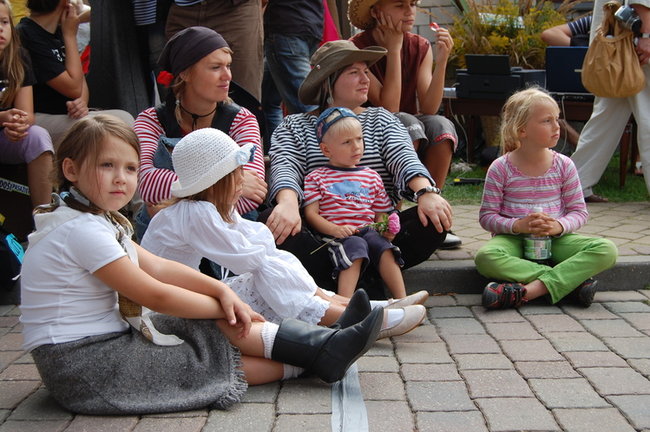Medical expert of the article
New publications
Myths and truth about hemorrhoids
Last reviewed: 07.07.2025

All iLive content is medically reviewed or fact checked to ensure as much factual accuracy as possible.
We have strict sourcing guidelines and only link to reputable media sites, academic research institutions and, whenever possible, medically peer reviewed studies. Note that the numbers in parentheses ([1], [2], etc.) are clickable links to these studies.
If you feel that any of our content is inaccurate, out-of-date, or otherwise questionable, please select it and press Ctrl + Enter.
Myth 1: Hemorrhoids occur because a person sits a lot
True. Hemorrhoids do not appear because a person sits for a long time. Sitting itself does not cause hemorrhoids. Hemorrhoidal cones appear only when, as a result of an incorrect posture or a long stay in a particular position, venous blood flow in the veins located near the rectum is disrupted. And then hemorrhoidal cones appear.
 [ 3 ]
[ 3 ]
Myth 2: Bleeding from hemorrhoids is inevitable
True. No, bleeding with hemorrhoids is not always present. It bothers a person only when bright red blood flows from the arteries, it can flow in a stream or in separate drops. In addition, hemorrhoids can be external and internal. With internal bleeding, there may be no bleeding, or it may be unnoticeable.
Myth 3: pain in the anus indicates hemorrhoids
True. No, anal pain is not always a sign of hemorrhoids. Pain can be caused by anal fissures or constipation, or inflammation, it is not necessarily hemorrhoidal cones.
Myth 6: Hemorrhoids occur due to poor personal hygiene
True. No, hygiene does not affect the occurrence of hemorrhoids. But it is especially necessary when hemorrhoids have already appeared and bother a person with pain and discomfort. Then you need to especially carefully monitor the cleanliness of the anus so that fecal matter does not irritate it. And also to effectively combat itching, pain and burning in the anus caused by the action of fecal residues.
 [ 6 ]
[ 6 ]
Myth 7: A doctor's examination for hemorrhoids can cause severe pain
True. If the doctor did everything correctly, lubricated the gloves with a special lubricant and examined the patient even using palpation. Examination can cause pain in hemorrhoids, when there are anal fissures, tears in the skin of the anus or prolapse of hemorrhoids, which are squeezed by the anal ring.
Myth 8: Hemorrhoids can turn into cancer
True. Hemorrhoids are enlarged, swollen veins in the rectum, but keep in mind that cancer is caused by cells growing out of control. Hemorrhoids do not lead to colon or rectal cancer (or colorectal cancer). In some rare cases, however, people with colorectal cancer are more susceptible to hemorrhoids. This is because extra pressure is placed on the veins of the rectum as the tumor grows.
Symptoms of hemorrhoids can be very similar to rectal cancer, so please see your doctor if you have the following symptoms: blood in your stool and rectal bleeding, as well as rectal pain.
 [ 7 ]
[ 7 ]
Myth 9: Black pepper can cause hemorrhoids
True. When consumed in moderation, black pepper is not likely to cause hemorrhoids. However, in some people, spicy foods can create rectal itching and irritation.
Myth 10: Sitting on cold concrete, floors, or sidewalks can cause hemorrhoids

True. The myth that hemorrhoids are caused by sitting on cold concrete or pavement is quite popular in Asia. However, the truth is that hypothermia of the anus cannot cause hemorrhoids.
Myth 11: Only older people can suffer from hemorrhoids
True. With hemorrhoids, the weak and dilated veins of the rectum become stretched and swollen. In most older people, the vein walls become weaker as they stretch, making them more susceptible to hemorrhoids.
However, increased pressure on the rectal veins due to poor bowel habits (such as reading on the toilet or straining to eliminate stool), poor diet, lack of exercise, and prolonged periods of sitting or standing at any age can lead to hemorrhoids.
 [ 10 ]
[ 10 ]
Myth 12: There is nothing you can do to cure hemorrhoids.
True. Hemorrhoids are a very common disease, it is assumed that more than half of people aged 50 suffer from the development of hemorrhoids. But it can be cured. If you apply various methods of influence: changing your lifestyle, diet, physical activity and, in extreme cases, surgical methods of influence.
Myth 13: If you get rid of constipation, you won’t get hemorrhoids
True. People who want to get rid of hemorrhoids are afraid of the very thought of going to the toilet. And so they start taking laxatives to make their stool softer. But they make a huge mistake, because the liquid stool with an acidic environment irritates the sphincter, causing spasms. Thus, the sphincter ring squeezes the hemorrhoidal cones, which hurt even more.
Myth 14: There is no way to get rid of hemorrhoids except through surgery
True. If you interact with your doctor, understanding the causes and symptoms of hemorrhoids, then you can cure this disease without surgery. For example, with the help of sclerotherapy. This is a method in which a medicine is injected into the hemorrhoidal nodes so that the node dries out. At the same time, bleeding is stopped, swelling is removed, pain is eliminated - and all this with the help of laser exposure.
With this method of action, the wounds also heal quickly. And the person recovers very quickly after such a quick operation.
If you have hemorrhoids, there are many steps you can take to relieve pain, burning, itching, and discomfort. For temporary relief, you can use foot baths and topical pain relievers. For severe cases of hemorrhoids, surgery may be the only viable solution.

